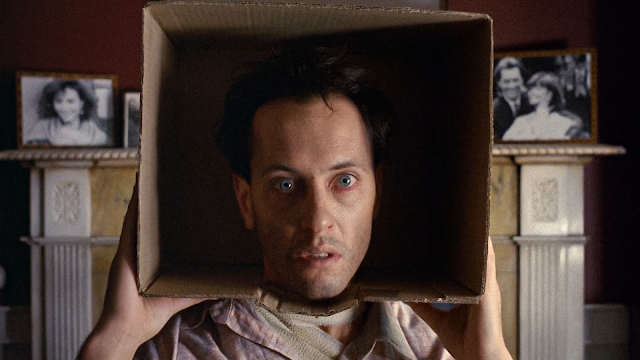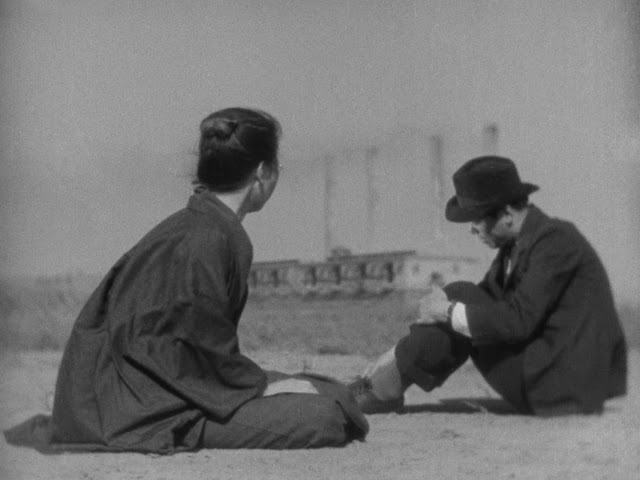 |
| Leonardo DiCaprio and Lily Gladstone in Killers of the Flower Moon |
Cast: Leonardo DiCaprio, Lily Gladstone, Robert De Niro, Jesse Plemons, Tantoo Cardinal, John Lithgow, Brendan Fraser, Cara Jade Myers, Jenae Collins, Jillian Dion, Jason Isbell, William Belleau, Louis Cancelmi, Scott Shepherd, Everett Waller, Talee Redcorn, Yancey Red Corn, Tatanka Means.
Screenplay: Eric Roth, Martin Scorsese,
based on a book by David Gran.
Cinematography: Rodrigo Prieto.
Production design: Jack Fisk.
Film editing: Thelma Schoonmaker.
Music: Robbie Robertson.
Like everyone who knows anything about movies, I admire Martin Scorsese. He's an acknowledged master storyteller, able to elicit fine performances and to find just the way to place and move the camera. But why does Killers of the Flower Moon, like so many of his films, leave me cold? The treatment of the indigenous people of this country will always be an urgent American subject, and Scorsese has found a story with vivid characters, both about the exploited and the exploiters. The film has sweep and texture, which is exactly what it needs. But the moment Leonardo DiCaprio appeared on screen, looking puffy and thick-headed in contrast to his usual bright, handsome persona, turning his mouth down at the corners so he looks a little like Robert De Niro, who plays his uncle, I felt something was off. He gives a good performance as the somewhat slow Ernest Burkhart, who is roped by his uncle William Hale into a scheme to defraud the newly oil-rich members of the Osage tribe of their money. But that's what it is: a performance. And when Jesse Plemons comes on screen as the federal agent investigating the scheme, I knew what was wrong: DiCaprio was originally slated to play the fed, which would have been consistent with his acting persona, but he asked Scorsese if he could play Burkhart instead, knowing that it was the more complex role. Scorsese yielded to the star who has been the lead in six of his films, starting with Gangs of New York (2002). So instead of feeling the urgency of the story, I felt I was watching an actor try out something new. Would Killers of the Flower Moon have been a better movie if, say, DiCaprio took the intended role and let Plemons play Burkhart, casting that would have been a better fit? I don't know, because the other thing about the movie that bothers me is more fundamental: It's a story told from the white man's point of view. All of the bad guys in the film are fully characterized, but of the Osage characters, only Mollie (Lily Gladstone), whose marriage to Burkhart sets the plot in motion, comes alive as a real person, thanks in large part to Gladstone's fine performance but also to Scorsese for giving the role substance. I kept wanting the Osages to break out of movie stereotypes of Native Americans -- the way, for example, the characters in the great TV series Reservoir Dogs did. Instead we get the usual victimization and swoony nature mysticism that afflict even well-meaning films dealing with indigenous people. Killers of the Flower Moon is often a very good movie, but something is lacking at its core.




























